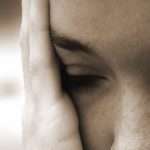Lifestyle

Nutrition therapy is a key component of eating disorder treatment and your recovery process. Although you may feel overwhelmed by the array of treatments available to help you recover, you should not think twice about making nutritional therapy part of your treatment. This type of therapy can help you regain control over your eating habits …
Read More

With swimsuit season getting closer and the climate getting hotter, starting an exercise routine will be on many people’s minds. However, if you are recovering from an eating disorder, starting a workout regimen can be harder than for most. Many people who suffer from eating disorders abuse exercise as a method for weight loss and …
Read More

Each person is unique, yet we all have much in common. The same may be said about recovery from an eating disorder. Each individual journey is unique and yet all are similar. In the book 8 Keys to Recovery From an Eating Disorder, authors Carolyn Costin and Gwen Grabb outline the similarities. They found that …
Read More

To establish healthy eating habits, consider experimenting with light but nutrient-substantial salads. Eating them gives the body necessary vitamins, protein and minerals without causing an uncomfortable full or “stuffed” feeling. It is also easy to make enough salad for more than one meal – a convenient plus. Here is a recipe you can tailor to …
Read More

When you are recovering from an eating disorder, finding the right diet plan can be difficult. The decision-making process can be very overwhelming and can cause anxiety about how much to eat, when to eat and what to eat. Lori Lieberman, a dietitian and eating disorder counselor, remarks that when trying to recover: We need …
Read More

Those who suffer from bulimia struggle with trying to break the binge-and-purge cycle they encounter when under stress. This cycle occurs when thoughts and emotions overwhelm a person and can lead to behaviors that can seem impossible to stop. Luckily, there are steps you can take to stop the cycle before it spirals out of …
Read More

Being hard on yourself when you binge or purge may seem like the best way to keep yourself on track with recovery, but current research suggests that kindness is more successful than self-flagellation. Many women worry that the only thing keeping them motivated in recovery is the harsh self-talk and perfectionism with which they are …
Read More

When you or a loved one is struggling with an eating disorder, it can be hard to bring about stability and equilibrium within the family. However, being aware of how shame, guilt and blame are affecting both your recovery and family relations can help to re-establish equilibrium in every aspect of your life. Shame and …
Read More

The holiday season can cause a heightened sense of stress in the face of an overwhelming schedule of events, frustrating family situations and a constant focus on food. During the holidays, eating disorder treatment professionals report seeing an increase in eating-disordered thoughts, behaviors and relapse in patients. Stress and the Holidays The holiday season is …
Read More

Recovering from an eating disorder is difficult, but staying in recovery can be even harder. Although it may seem like you’ve overcome the disorder, there is always the fear of relapse lurking at the back of your mind. You may feel more vulnerable during periods of stress or anxiety in your life, which can result …
Read More
 Eating Disorder Self Test. Take the EAT-26 self test to see if you might have eating disorder symptoms that might require professional evaluation. All answers are confidential.
Eating Disorder Self Test. Take the EAT-26 self test to see if you might have eating disorder symptoms that might require professional evaluation. All answers are confidential.
Find a Treatment Facility Near You
Click on a state below to find eating disorder treatment options that could be right for you.










 Eating Disorder Self Test. Take the EAT-26 self test to see if you might have eating disorder symptoms that might require professional evaluation. All answers are confidential.
Eating Disorder Self Test. Take the EAT-26 self test to see if you might have eating disorder symptoms that might require professional evaluation. All answers are confidential.